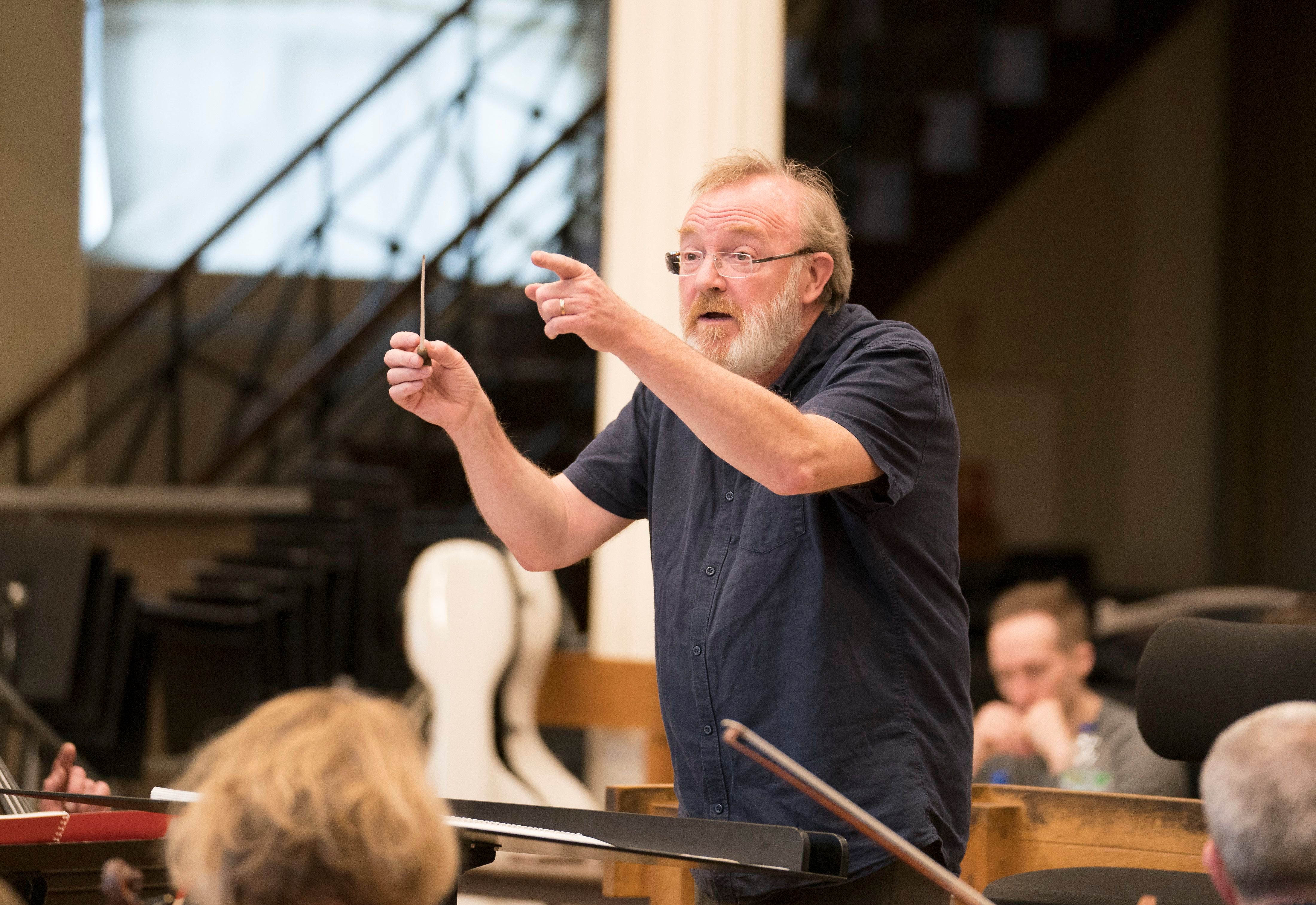English National Opera cuts risk ‘killing off of art form’, warn prominent music directors
Former ENO conductors Edward Gardner, Sir Mark Elder and the Royal Opera House’s Sir Antonio Pappano said cuts would make company ‘an empty shell of its former self’

Your support helps us to tell the story
From reproductive rights to climate change to Big Tech, The Independent is on the ground when the story is developing. Whether it's investigating the financials of Elon Musk's pro-Trump PAC or producing our latest documentary, 'The A Word', which shines a light on the American women fighting for reproductive rights, we know how important it is to parse out the facts from the messaging.
At such a critical moment in US history, we need reporters on the ground. Your donation allows us to keep sending journalists to speak to both sides of the story.
The Independent is trusted by Americans across the entire political spectrum. And unlike many other quality news outlets, we choose not to lock Americans out of our reporting and analysis with paywalls. We believe quality journalism should be available to everyone, paid for by those who can afford it.
Your support makes all the difference.Three prominent music directors in the opera industry have warned of the downfall of the English National Opera if planned cuts go ahead.
Edward Gardner and Sir Mark Elder, who were both formerly heads of music at the organisation, signed a joint letter published in The Times with Sir Antonio Pappano, music director of the Royal Opera House, calling for an intervention to prevent the company’s “demise”.
The call to action comes after the sudden resignation of Martyn Brabbins, who had been the English National Opera’s (ENO) music director since 2016.
Brabbins announced his resignation on Sunday (16 October), saying proposals by management in the wake of Arts Council England’s withdrawal of funding would “drive a coach and horses” through the company’s artistic integrity.
The organisation proposed on 13 October to axe 19 orchestral positions and employ its remaining musicians on part-time contracts after a loss of the company’s arts council funding, which sparked protest from the Musicians’ Union.
According to The Times, the directors wrote in their joint letter that they were “devastated to hear of the proposed cuts” to the ENO’s orchestral and chorus staff and warned of the collapse of the company if the cuts go ahead.
“We should all be clear: if these plans go through, it will lead to the demise of this great company,” the music directors wrote. “An opera company is defined by its chorus and orchestra – their passion, expertise and knowledge. ENO is among the best in the world.”
“Many of these highly trained musicians and singers will not be able to continue in their jobs. Anyone who can find alternative employment will.”
It follows a decision made by Arts Council England (ACE) in November 2022 that the ENO – based in central London – would lose all of its £12m funding unless it moved out of the capital.
Enjoy unlimited access to 100 million ad-free songs and podcasts with Amazon Music
Sign up now for a 4 month free trial (3 months for non-Prime members)
Enjoy unlimited access to 100 million ad-free songs and podcasts with Amazon Music
Sign up now for a 4 month free trial (3 months for non-Prime members)
The funding body is thought to have introduced the changes following pressure from the government to encourage “levelling up” by moving funding to other regions outside of London. After an outcry from the music community, it was announced in July that the ENO had been granted a subsidy of £24 million until 2026 and had its relocation deadline extended to 2029.

Sir Pappano and his co-signatories said in their joint letter that the proposed cuts would make the company “an empty shell of its former self” and would prevent the organisation from putting on its large scale productions that it is best known for.
“This isn’t levelling up, it is the killing off of the art form,” the music directors said.
“The Arts Council and the industry need to be honest about the effect of these cuts. And we plead with them to reconsider their support or the work of this great company will be irretrievably lost,” they added.
In a statement shared on Monday (16 October), an Arts Council spokesperson told The Independent: “We understand this is a challenging period of change for the English National Opera and its people.”
“While we do not get involved in the day to day running of organisations, or the contractual arrangements they make with their staff, we have said that we want our investment to build sustainable businesses that are able to offer well paid work for as many people as possible.”
“We have made it clear to the ENO that we do not have additional funding available to support them and other National Portfolio organisations facing financial challenges, and we have ensured that the Musician’s Union is aware of this reality.”
“We continue to work closely with the ENO to agree how they would use the £24 million grant available for 2024 to 26 to develop a range of activity linked to their move to a new base outside London, alongside their programme at the [London] Coliseum.”



Join our commenting forum
Join thought-provoking conversations, follow other Independent readers and see their replies
Comments